Are viruses removed completely by ultrafiltration? | Insights by AQUALITEK
- Understanding Virus Removal Efficiency in Ultrafiltration Systems
- 1. How Effective Are Ultrafiltration Systems in Removing Viruses?
- 2. What Factors Influence Virus Removal Efficiency in Ultrafiltration?
- 3. Are There Limitations to Virus Removal by Ultrafiltration?
- 4. Can Ultrafiltration Be Used Alone for Virus Removal in Water Treatment?
- 5. How Does Membrane Fouling Affect Virus Removal Efficiency?
- 6. Are There Advances in Ultrafiltration Membranes to Improve Virus Removal?
- 7. How Does Virus Removal Efficiency Change Over Time in Ultrafiltration Systems?
- 8. What Are the Applications of Ultrafiltration in Virus Removal?
- Conclusion: AQUALITEK's Advantages in Virus Removal
Understanding Virus Removal Efficiency in Ultrafiltration Systems
Ultrafiltration (UF) is a membrane filtration process that separates particles based on size exclusion, typically ranging from 1 to 100 nanometers. This process is effective in removing suspended solids, bacteria, and macromolecules from water. However, when it comes to virus removal, the efficiency of UF systems varies depending on several factors.
1. How Effective Are Ultrafiltration Systems in Removing Viruses?
Ultrafiltration membranes have pore sizes that can effectively filter out larger microorganisms like bacteria and protozoa. However, viruses, which are much smaller (typically between 0.02 to 0.3 microns), present a greater challenge. The effectiveness of UF in removing viruses depends on the specific membrane characteristics and the type of virus. Some studies have shown that UF can achieve up to 4-log removal (99.99%) for certain viruses, including larger ones like norovirus and rotavirus. For smaller viruses, the removal efficiency might be slightly lower but still significant.
2. What Factors Influence Virus Removal Efficiency in Ultrafiltration?
Several factors can impact the efficiency of virus removal in UF systems:
Membrane Pore Size Distribution: The size and uniformity of membrane pores play a crucial role in determining which particles are retained.
Virus Characteristics: The size, shape, and surface properties of viruses can affect their ability to be filtered out.
Water Chemistry: The presence of organic matter, pH levels, and ionic strength can influence the interaction between viruses and the membrane surface, affecting removal efficiency.
Membrane Fouling: Accumulation of organic and inorganic materials on the membrane surface can reduce permeability and affect virus removal.
3. Are There Limitations to Virus Removal by Ultrafiltration?
While UF is effective against many viruses, it may not achieve complete removal for all types. The efficiency can be influenced by factors such as membrane fouling, which can reduce permeability over time, leading to increased operational costs due to cleaning frequency and membrane replacement needs. Additionally, UF may not be effective against all viruses, especially smaller ones.
4. Can Ultrafiltration Be Used Alone for Virus Removal in Water Treatment?
In many cases, UF can be used as a standalone method for virus removal, especially when treating water with low to moderate virus concentrations. However, for water sources with high virus loads or when dealing with smaller viruses, UF may need to be complemented by additional disinfection steps such as ultraviolet (UV) irradiation or chlorination to achieve comprehensive virus control.
5. How Does Membrane Fouling Affect Virus Removal Efficiency?
Membrane fouling occurs when suspended solids, organic matter, biofilms, or scaling minerals accumulate on the membrane surface, reducing its permeability. This buildup can lead to decreased virus removal efficiency and increased operational costs due to the need for more frequent cleaning and membrane replacement. Effective pre-treatment, such as coagulation or filtration upstream, can help minimize fouling incidence but adds complexity to the system.
6. Are There Advances in Ultrafiltration Membranes to Improve Virus Removal?
Yes, there have been significant advancements in UF membrane technology to enhance virus removal efficiency. For instance, Toray Industries developed a new polyvinylidene fluoride (PVDF) UF membrane with exceptional virus removal rates and high water permeability, contributing to safe and economical water supplies treated with minimal energy.
7. How Does Virus Removal Efficiency Change Over Time in Ultrafiltration Systems?
Over time, the performance of UF systems can degrade due to factors like membrane fouling and aging. Studies have shown a decrease in virus removal efficiency after several years of operation, highlighting the importance of regular maintenance and monitoring to ensure optimal performance.
8. What Are the Applications of Ultrafiltration in Virus Removal?
UF is widely used in various applications for virus removal, including:
Drinking Water Treatment: To produce potable water by removing pathogens.
Wastewater Reclamation: For treating and reusing wastewater by removing contaminants.
Biopharmaceutical Manufacturing: To ensure the safety of bioproducts by removing viruses.
Conclusion: AQUALITEK's Advantages in Virus Removal
AQUALITEK offers advanced ultrafiltration systems designed to effectively remove viruses from water sources. Our membranes are engineered with precise pore sizes and surface properties to enhance virus retention while maintaining high water permeability. Additionally, AQUALITEK's systems incorporate features to minimize membrane fouling, ensuring consistent performance over time. With a focus on innovation and reliability, AQUALITEK provides water treatment solutions that meet the highest standards for virus removal efficiency.




Request More Information or Expert Advice
Share a few details, and we’ll provide deeper insights, tailored suggestions, or product support.

Our 500 LPH Reverse Osmosis (RO) System is engineered to provide high-quality purified water for commercial applications. Designed with advanced RO technology, durable components, and a user-friendly interface, this system ensures consistent performance, low maintenance, and long-term reliability.
With its compact design and robust skid-mounted frame, it’s an excellent choice for businesses that demand efficiency and quality in water purification.

Introduction to Manganese Sand Filter
Manganese Sand Filter (MSF) is an efficient water filtration system specifically designed to remove iron, manganese, and hydrogen sulfide from water.
The filter utilizes a special manganese dioxide-coated sand media, which acts as an oxidizing agent to convert dissolved iron and manganese into solid particles, allowing them to be easily trapped and removed during the filtration process.
Manganese Sand Filters are commonly used in residential, commercial, and industrial water treatment applications where high levels of these contaminants are present. By improving water quality, preventing staining, and reducing unpleasant tastes and odors, Manganese Sand Filters provide a reliable and cost-effective solution for maintaining clean, clear, and safe water.

Introduction to Green Sand Filter (GSF)
Green Sand Filter (GSF) is an effective water filtration system designed to remove iron, manganese, and hydrogen sulfide from water. Utilizing a specially treated green sand media, this filter works through the process of oxidation and adsorption, where impurities are trapped within the filter media, ensuring clean, clear water. Green Sand Filters are widely used in both residential and industrial applications where water contains high levels of iron and other minerals that can cause staining, unpleasant odors, and corrosion. By providing an efficient and cost-effective solution for water purification, Green Sand Filters help protect plumbing systems, appliances, and enhance water quality for various applications.

Activated Carbon Filter (ACF)
Our Activated Carbon Filter (ACF) is a highly effective water filtration system designed to remove chlorine, organic compounds, unpleasant odors, and harmful contaminants from water. Utilizing activated carbon’s high adsorption capacity, ACFs efficiently trap and eliminate impurities, improving taste, color, and overall water quality. These filters are widely used in industrial, commercial, and residential applications, serving as a critical pre-treatment step for processes like reverse osmosis (RO) and drinking water purification. With their ability to enhance water safety and meet stringent quality standards, Activated Carbon Filters play a vital role in various water treatment systems.
Copyright © 2025 AQUALITEK. All rights reserved.

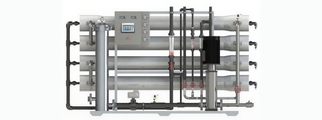
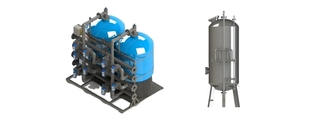
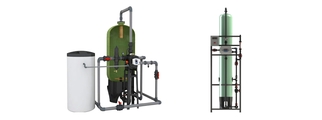
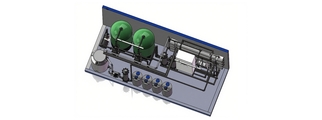
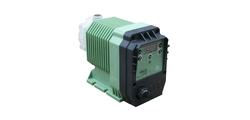
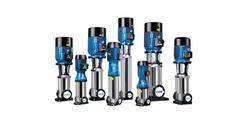
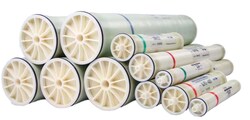
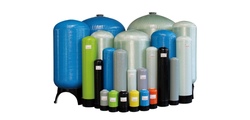
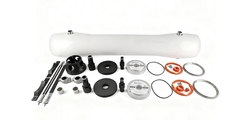
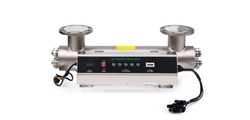
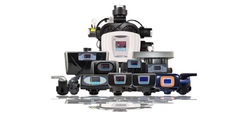
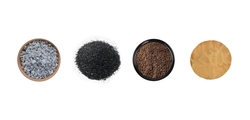
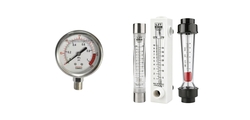
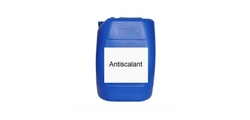
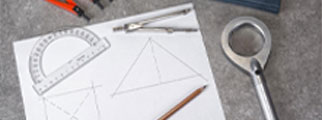



AQUALITEK- Aimee Hoo
AQUALITEK - Aimee Hoo